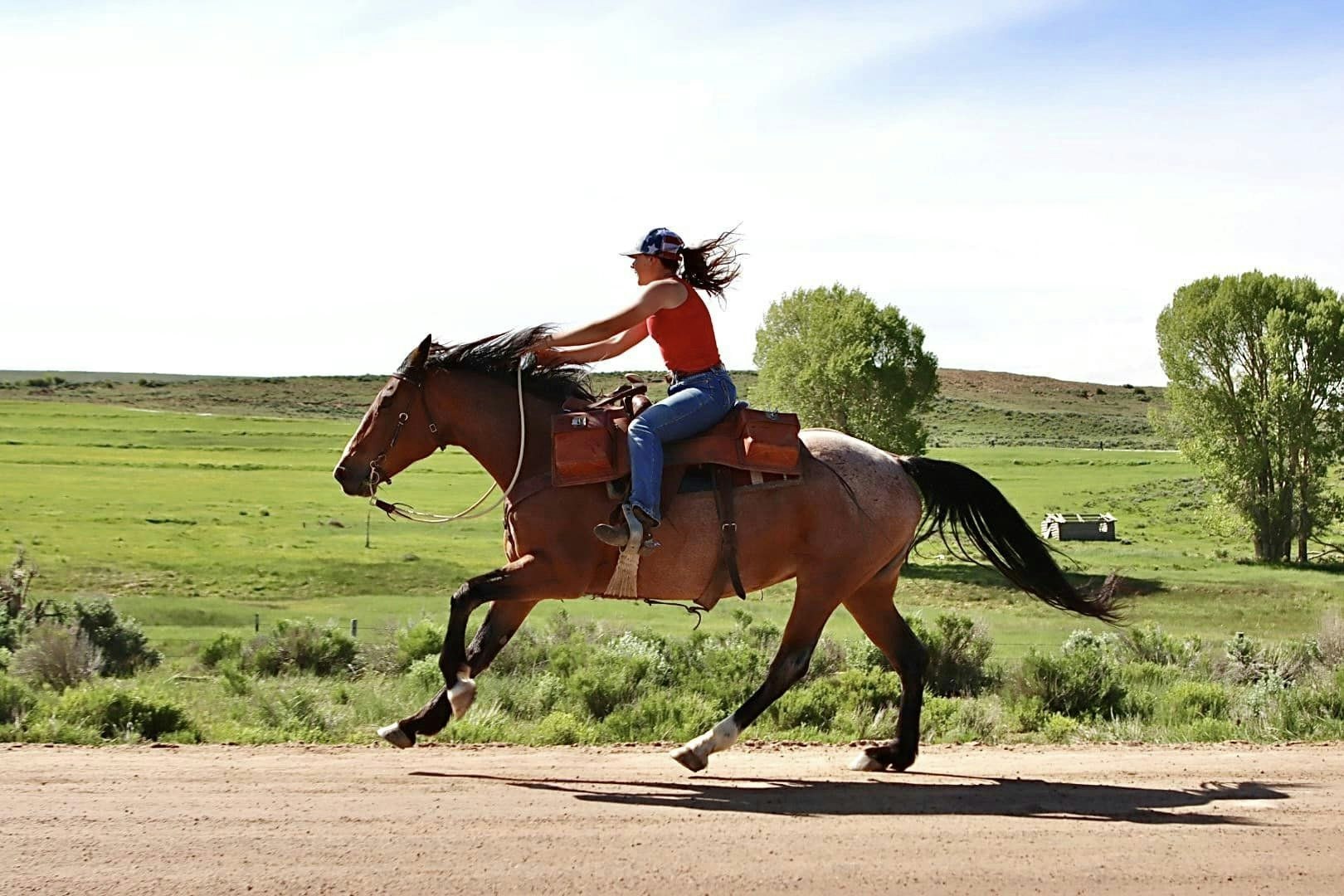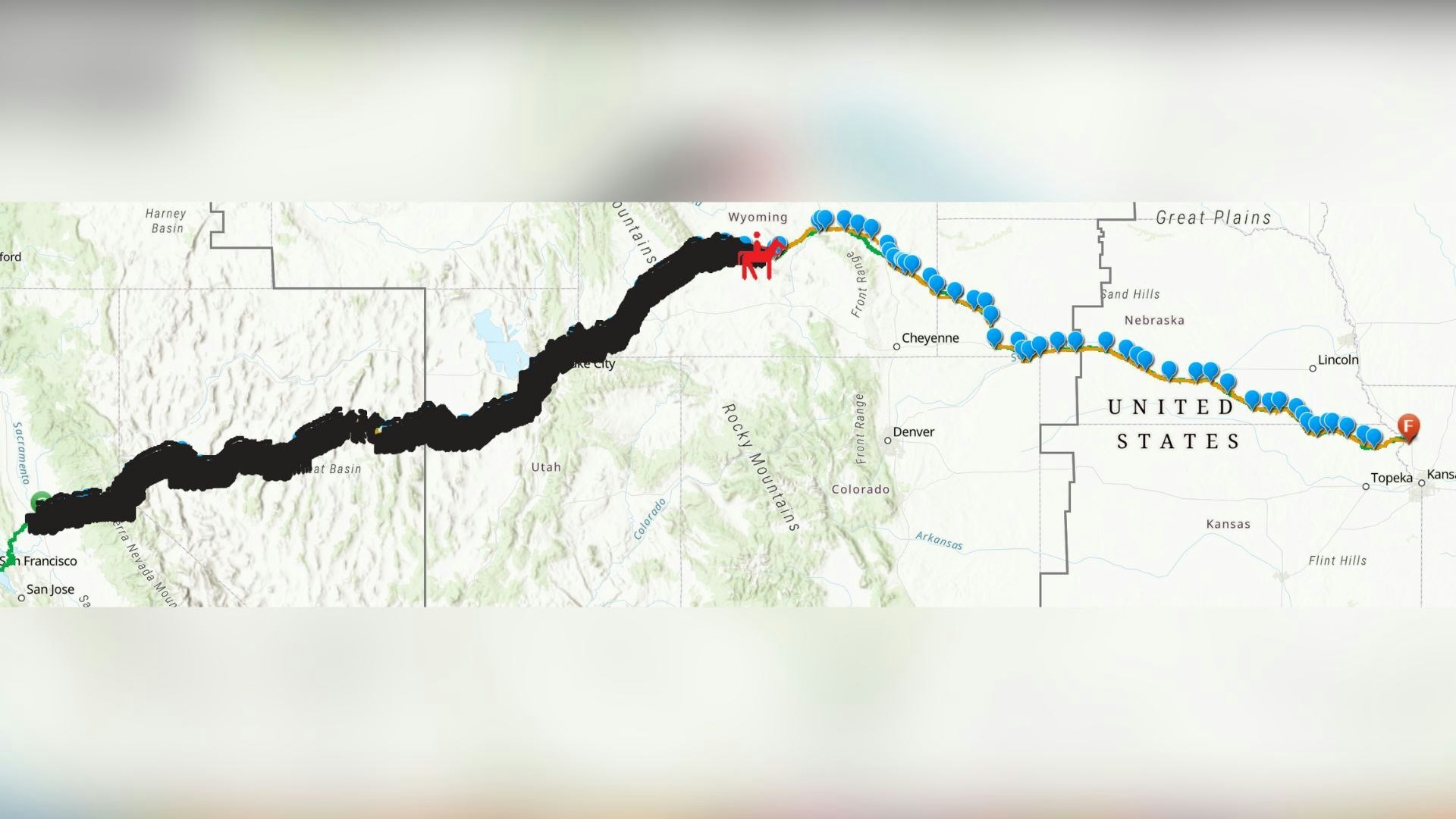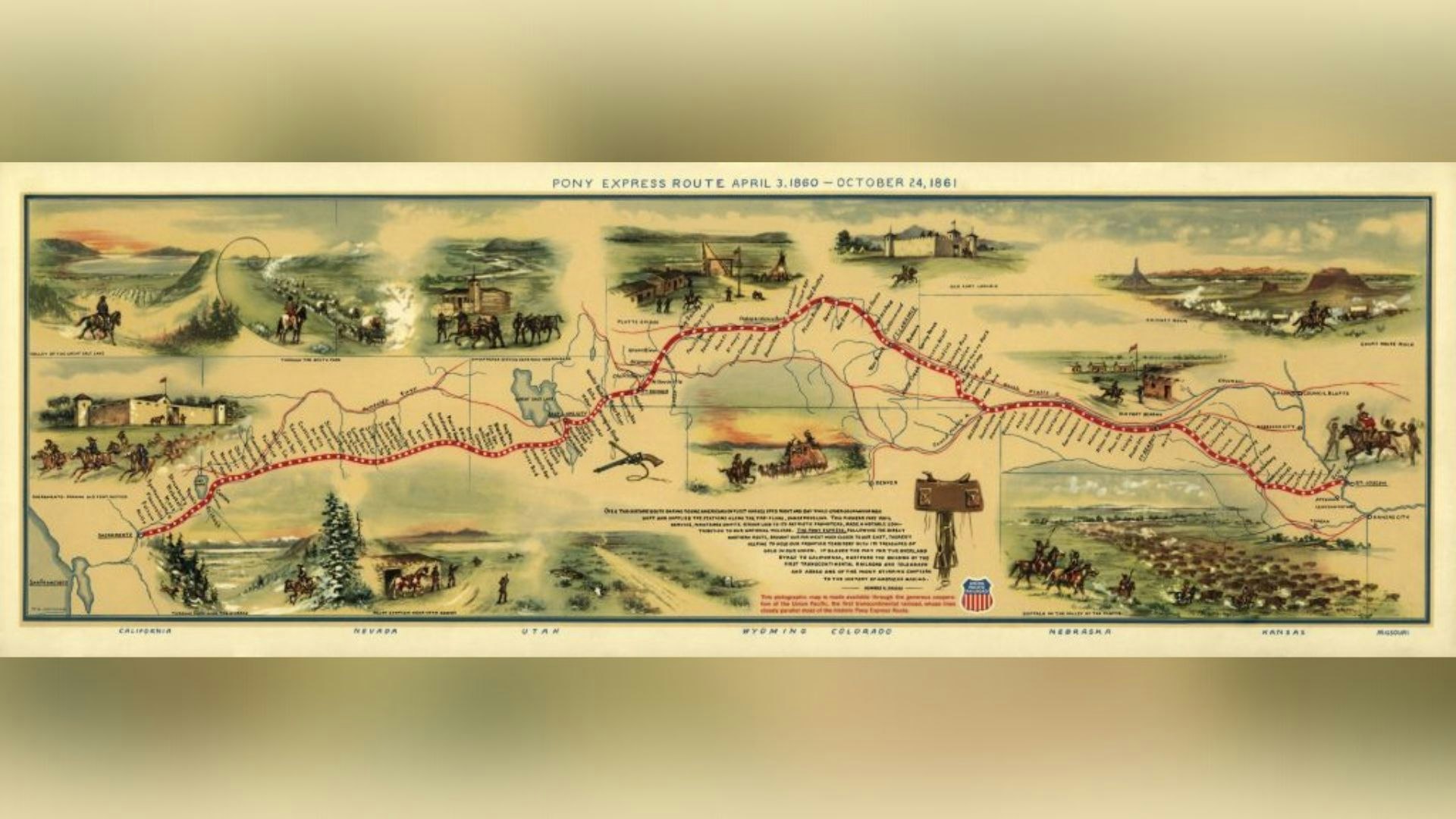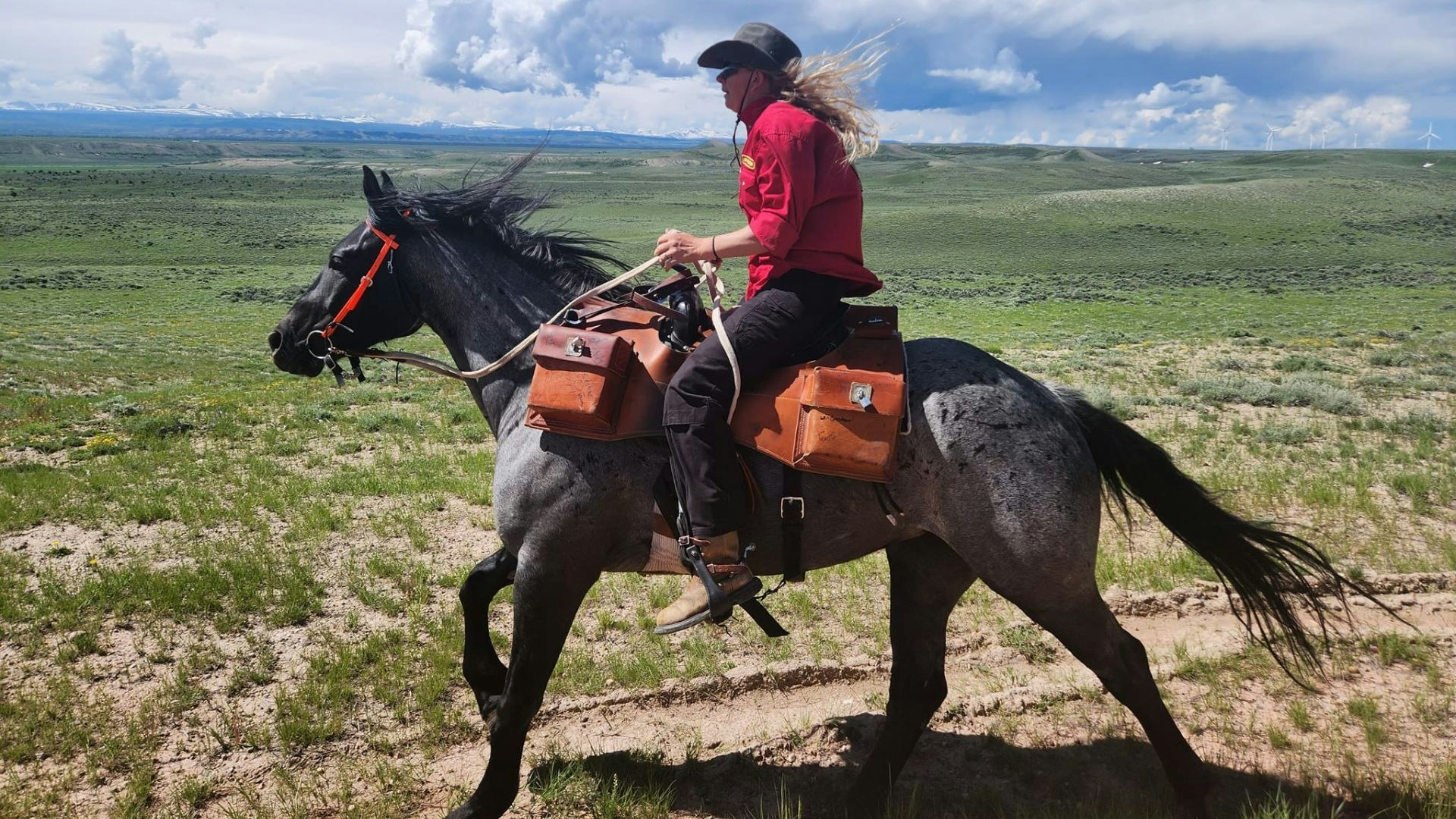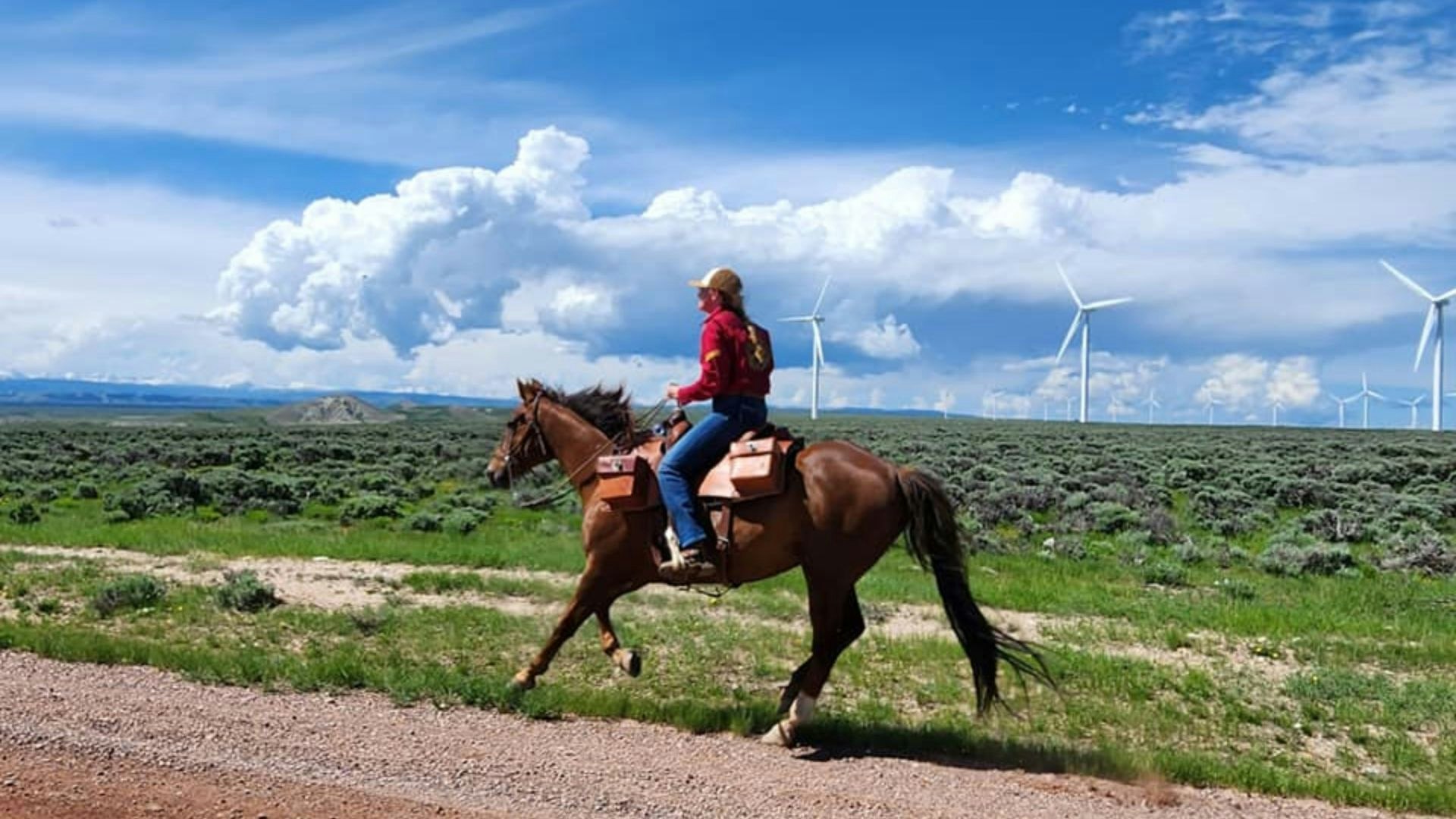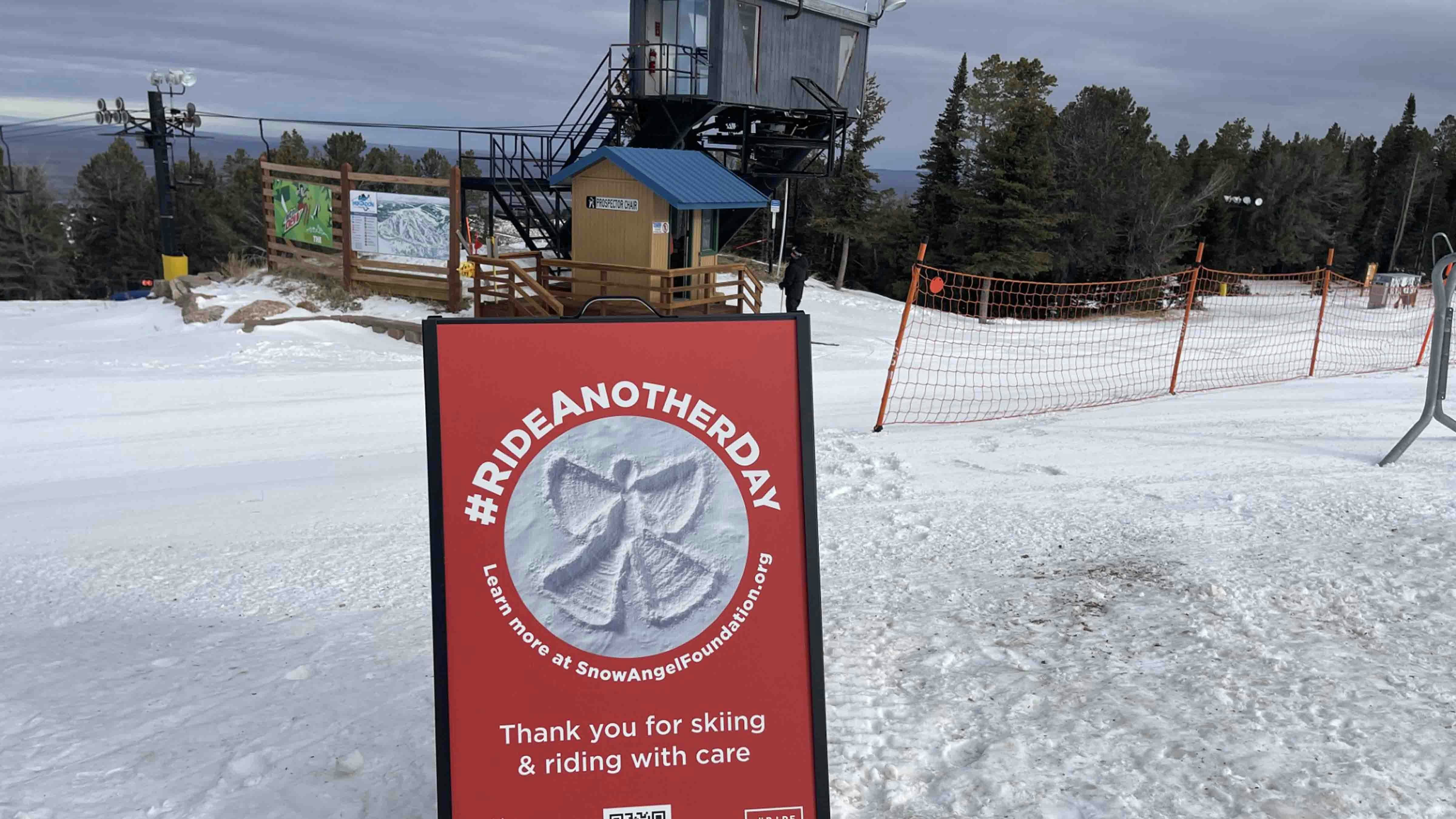The Pony Express rides again, but if it rains much more the horses may have to swim.
For 10 days each June, volunteer riders carry real U.S. mail on horseback across the same route that a young William F. “Buffalo Bill” Cody rode in 1860, part of a short-lived effort at that time to carry mail from east to west before the connection of the transcontinental telegraph.
An annual reenactment of the Pony Express rides has been making its way through Wyoming this week, with riders entering the state south of Evanston on Monday, headed toward Torrington, then passing into Nebraska sometime Wednesday afternoon.
Organizer Les Bennington with the National Pony Express Association told Cowboy State Daily that the weather has hampered the ride this year.
“We've got 56 hours to get across Wyoming, a little over 500 miles,” said Bennington on Tuesday from his home in Glenrock. “And of course, you're pulling horse trailers on muddy roads, and that can really be a mess. And I haven't heard, but I think that Oregon Trail route where they're at right now, or will be later this afternoon, is going to be an absolute mess because there’s a lot of bentonite clay in that soil.”
The Pony Express
The original Pony Express operated for 18 months from April 3, 1860, through Nov. 20, 1861. The operation officially ceased because of the connection of the transcontinental telegraph Oct. 24, 1861.
Until that point, though, riders would carry mail in a mochila, a large leather pouch, through cold, heat, rain, sleet and snow, handing off the mochila to the next rider at a series of waystations set up across the prairie. The route connected St. Joseph, Missouri to Sacramento, California, crossing Kansas, Nebraska, Colorado, Wyoming, Utah and Nevada along the way, for a total of over 1,966 miles.
Annual Re-Ride
Since 1980, volunteers have reenacted the legendary rides, traveling east one year and west the next.
More than 600 riders are part of this year’s, which takes them along the Pony Express Trail, which was designated a national historic trail in 1992. Each rider takes a short leg, between 1 and 20 miles, depending on terrain, rider ability and trail accessibility, at an average speed of 10 mph.
But the mochila being carried by the riders isn’t just for show. Anyone who wants to can send a souvenir commemorative letter to be carried on the re-ride for $5, or a personal letter for $10. The letters will be sent on to their final destination via the U.S. Postal Service, which will collect the mail from the final rider in St. Joseph on June 17.
Riders Dealing With Tough Weather
Bennington said the riders coming in from Utah were already behind schedule because of weather west of there.
“Nevada had a lot of rain and trouble with mud and everything out there,” he said.
But Bennington reported that the roughly 500-mile stretch across Wyoming has gone relatively well, despite the rain.
“The Uinta Mountains are pretty well still white,” he said. “That's the most (snow) I'd ever seen on them at almost the middle of June. From Rawlins over toward Rock Springs and Evanston, it’s the greenest I've ever seen Wyoming this time of year.”
But he said the plan is to hand off the mochila Wednesday afternoon, as scheduled.
“We'll give it off to Nebraska on the 14th about 2:30, just west of Lyman, Nebraska, there at the state line,” said Bennington.
Following The Ride
Anyone can follow the riders using technology not dreamt of in 1860.
“The GPS pinger we call it, that's on the mochila, sends out a signal I think every 5 minutes or 10,” said Bennington. “If the horse is red, it's behind schedule. If it's green, it's ahead of schedule.”
As of Tuesday mid-day, the red rider icon was located between Soda and Jackson Lakes near the Colorado border. But for those who would like to get a glimpse of the actual riders, Bennington said spectators are welcome.
“We came through Farson (Monday) night at about 7:30,” he said. “We were about a half hour late there, but there was a good crowd at Farson. There was probably 75 to 100 people there.”

